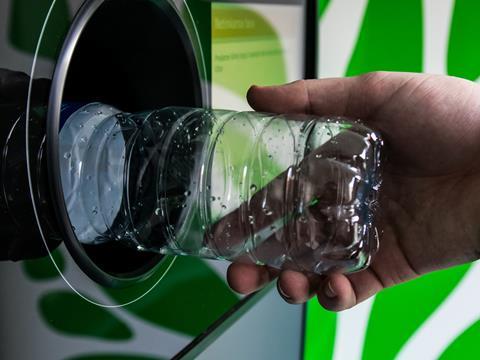
Unilever and the Alibaba Group have created an Al-enabled recycling system that automatically identifies and sorts plastic packaging, with the aim of speeding high-grade plastic back into the circular economy.
The launch of the system, dubbed ‘Waste-Free World’, saw 20 recycling machines installed as part of a pilot programme in offices and community spaces in two of China’s largest cities: Shanghai and Hangzhou.
Each machine is equipped with AI technology that automatically identifies different kinds of plastic bottle. Customers use Alibaba’s e-wallet service to scan the QR code displayed on the screen of the machine and then deposit the bottle into the recycling bin.
Using AI technology, the system automatically identifies the plastic the bottle is made of, sorts it and stores it, so that it can be collected and returned to recycling.
Consumers earn Unilever coupons and green energy points on the Alipay ‘Ant Forest’ for each bottle they deposit in the ‘Waste-Free World’ machines. Consumers collect these points and then put them to use planting trees or protecting conservation land.
Since Alipay Ant Forest’s launch in 2016, Alibaba says that it has helped plant more than 200 million trees in partnership with NGOs in arid areas of China.
“’Waste-Free World’s’ ability to pre-sort plastic packaging into its various grades enhances the quality of recycled plastic bottles and means the reuse of plastic materials will be more effective and could better contribute to a circular economy,” says Unilever North Asia’s supply chain vice president, Jennifer Han.
“Plastic has its place, but it should not cause environmental pollution,” acknowledges Rohit Jawa, Unilever’s executive vice president for North Asia.
“By 2025, we will make an absolute reduction of 100,000 tons in plastic use and promote the use of recyclable plastic, so that we can halve the amount of virgin plastic we use in packaging and help collect and process more plastic packaging than we sell.
“We believe Waste-Free World, jointly launched with Alibaba Group, will become the ‘green engine’ of the circular economy for plastic packaging in China,” Jawa concludes.














